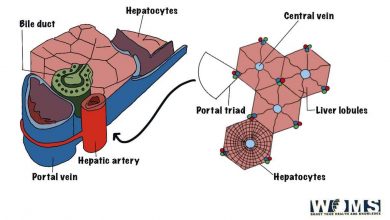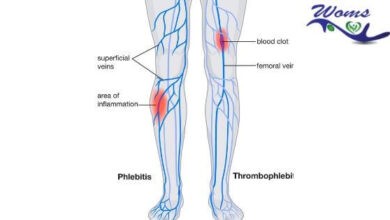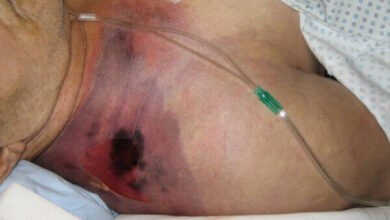Complications of Functional Endoscopic Sinus Surgery

What Are The Risks That Can Occur After Sinus Surgery?
ENT specialists recommend undergoing sinus surgery when the sinuses are unable to drain mucus adequately. The inflammation of the sinuses leads to a collection of mucus that can get infected causing some symptoms.
The sinus surgery is an outpatient procedure that aims to expand the nasal passages making it possible for the sinuses to drain properly. However, people are often sceptical of undergoing this surgery of the complication it entails. Some of the risks that can occur after sinus surgery are discussed below.
7 Complications that occur after Sinus Surgery
1. Bleeding
There can be some mild bleeding on the initial days of the recovery period. There’s nothing to worry about as this is absolutely normal. Usually, the doctor places a nasal packing that can soak up the maximum blood. Hence, it is recommended not to remove the nasal packing in the initial week of the recovery.
2. Postnasal drip
After the surgery, the patient may have a feeling of postnasal drip. This is a common side effect that occurs. This keeps the throat lining moist and prevents dryness of the throat.
3. Pain around the eyes and face
The sinuses remain sore and swollen post the surgery. As the sinuses are close to the eyes, these can also be painful to touch.
4. Loss of sense of taste or smell
It is common for patients to complain that they are unable to smell or taste anything for a few days after the sinus surgery. Gradually, within a week or two the sense of taste or smell returns as the sinuses start to heal.
5. Vision problems
During the surgery, the doctor can hurt the eye or optic nerve. This complication occurs only in rare cases. The person may permanently lose their eyesight. The injury can lead to double vision and a feeling of persistent tearing inside the eye. Also, there can some swelling around the eyes. In these cases, the patient has to undergo eye surgery.
6. Leakage of spinal fluid
The sinuses are located near the brain. Accidentally, the doctor may injure the brain that can lead to leaking of spinal fluid. Furthermore, this opens up a channel for an infection that can lead to meningitis. This is a fatal condition and occurs only in rare cases. In such instances, the person has to undergo another surgery.
7. Hoarseness of the voice
The throat and sinuses lining swell and thicken during the recovery period. Hence, there is a change of resonance of a person’s normal voice. Fortunately, this improves over time.
How To Prepare for Sinus Surgery?
The success of the sinus surgery primarily depends on how well the patient prepares for the surgery. Generally, the doctor needs to take the following precautions-
● Take the medicines prescribed by the doctor. These include antibiotics as well as oral steroids.
● Avoid taking medicines such as aspirin, ibuprofen and other nonsteroidal anti-inflammatory drugs (NSAIDs) at least one week or 10 days prior to the surgery.
● Also, stop taking Vitamin E supplements, garlic tablets, ginseng as these can thin the blood and cause bleeding
● Stop smoking at least three weeks before the surgery.
● Patients need to be on an empty stomach on the day of the surgery. This ensures the anaesthesia takes its effect immediately.
How To Recover After Sinus Surgery?
After the surgery, to reduce the chances of infection as well as ensure minimal pain, take the following precautions-
1. Do not remove the packing or splints. If there is discomfort, breathe through the mouth. In no way, it is advised to remove the nasal packing.
2. In the initial days of the recovery, sleep with the head elevated. This will reduce bleeding as well as swelling. Place some pillows to elevate the head.
3. Avoid blowing the nose for at least 7 days of the surgery.
4. Avoid performing any strenuous activities such as heavy lifting or high-intensity exercise.
5. If you feel like sneezing, try doing it through the mouth
6. Unless advised otherwise, restrict taking blood-thinning medicines
7. If there is bleeding after 3-4 days of the surgery, call the doctor immediately.
During the follow-up appointment which is around 3-7 days of the surgery, the doctor removes the nasal packing and check the progress of healing. Also, they advise cleaning the nose and sinuses once the packing is removed.
How Long Does It Take To Recover From Sinus Surgery?
The duration of the recovery depends on the individual’s healing capabilities and type of sinus surgery. Generally, it takes 2-5 days to recover after sinus surgery. On the second day, the person can resume their normal activities. The full recovery takes almost 2-3 weeks. After this, the patient is able to experience the results.
Conclusion
Similar to any other surgery, there are some risks associated with sinus surgery. With proper preparation before the surgery and following instructions after the surgery, can reduce the chances of these risks considerably. However, if there is chronic pain or swelling after the surgery, consult with an ENT specialist without fail.



